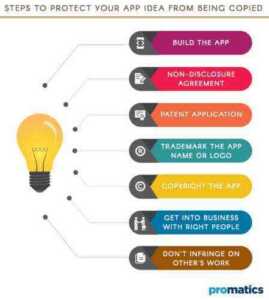Cyber attacks are the order of the day, and today more than ever, it is essential to take action in the security of your company. We are not talking about 15 year old hackers like the ones that used to be commonly arrested for cybercrime 10 ten years ago, but about real criminal organizations that can do serious damage to your business.
Recently, even companies such as The New York Times and the Wall Street Journal acknowledged that they had been the victims of sophisticated cyberattacks by the Chinese government. According to predictions from analysts and the FBI, cyberattacks will continue to grow this year.
Misconceptions of security have led many small business owners to completely omit security measures, which precisely places them as the main objectives.
There are two things that increase the likelihood that a small business will be targeted by a cybercriminal: your business line, and where your company works.
The most vulnerable sectors are: telecommunications, aerospace, advanced product manufacturing, finance, energy and companies indirectly related to these industries. Also at higher risk are some law firms, or non-governmental organizations, research centers, and the media that focus on controversial issues.
Often, small businesses with weak security systems, are the target of attacks directed at large corporations. An example of the above occurred in 2009, when a group of Asian hackers stole the planes of the American fighter jets, the F-35 and F-22.
The Lockheed Martin Security System (America’s leading arms company) was nearly impenetrable, but by attacking several of its smaller-scale contractors rather than directly at the company, the Asians were able to make a springboard to Lockheed’s systems. , and take the planes of the planes, information that has a value of more than a trillion dollars.
Many entrepreneurs tend to think “I am not the type of company that someone would want to attack“However, a new better way of looking at it is to think,”Do I have relationships with a company that could attract the attention of computer criminals?“
While the small companies they do not usually receive attacks that seriously damage their structure, it is still probable that attacks by an opportunist cybercriminal in search of data or funds. When it comes to these types of attacks, anyone who is connected to the Internet is at risk.
Here are five tips to protect your business from costly cyberattacks:
1. The use of encryption
Data encryption can help ensure that your company’s confidential information do not get exposed when an employee of yours loses or has their computer or cell phone stolen or stolen. Encryption software scrambles data to make it unreadable to those who don’t provide the correct password. On Windows, BitLocker is a hard drive encryption tool that comes standard with the operating system, while FileVault is the equivalent of this tool for Mac computers.
2. Educate employees about phishing scams
One of the most common ways hackers attempt to access a network is by tricking people through email “phishing.” These are e-mails sent by hackers to tempt you or your people in your company to click on a link in order to put malicious code on your computer. Educate your employees About threats by opening emails or clicking on suspicious links can go a long way in preventing attacks.
Employees must also be careful about downloading applications on mobile devices that they use for business. Criminals are getting more and more cunning at hiding malware within applications.
3. Know your network
Business owners they must be able to know what is happening within their network (what is coming in and what is going out). If strange activity is observed, you should be able to take preventive measures before the attacker manages to compromise your data. The only truly effective way to monitor your networks is to hire a full-time security expert who is trained to do so.
4. Keep your bank accounts safe
Use multi-factor authentication to log into your bank’s website (if supported by your bank). This means that your account will need several requirements to be able to identify itself before opening your account, such as a virtual token or even a telephone confirmation, in addition to the usual password. This will make it much more difficult for criminals to impersonate you.
5. Protect your devices on the go
In high-risk countries such as China, Russia, or Iran, it is not uncommon for teams to be searched while you are away from your hotel room. Keep your computing devices with you at all times. If you can afford it, designate an independent team just to travel. Do not store confidential information on that computer and clean it up when you return home before connecting it to your network.
Also, avoid taking your smartphone to countries at risk. Telecom providers in high threat countries often use malicious surveillance software on phones so they can monitor your calls without your permission or knowledge. Instead, consider buying a low-cost cell phone in the risky countries you visit and discard it when you leave.
Plus ideas for your small business:

























